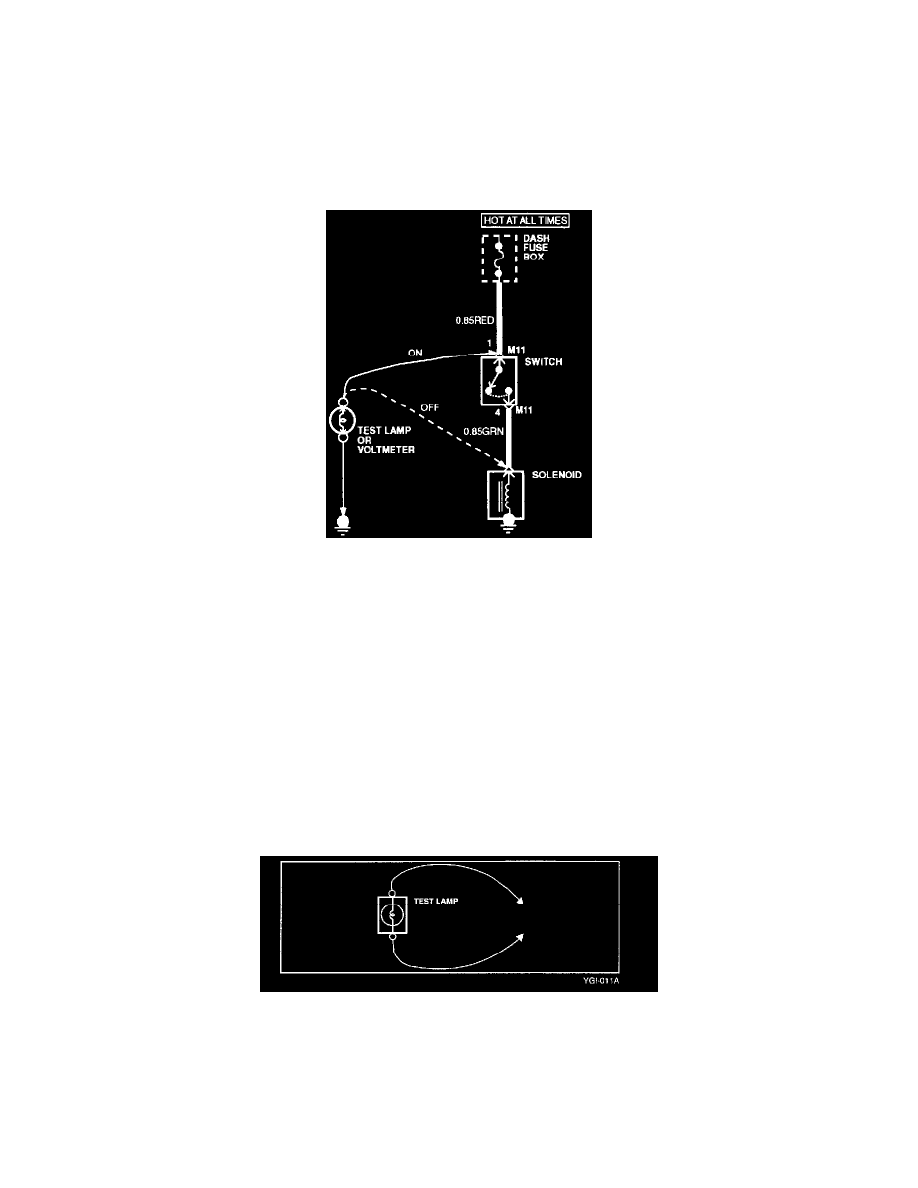Elantra L4-1595cc 1.6L DOHC 16 Valve (1995)

2. Connect the short finder across the fuse terminals.
3. Close all switches in series in the circuit you're testing.
4. Turn on the short circuit locator. It sends pulses of current to the short. This creates a pulsing magnetic field around the wiring between the fuse
box and the short.
5. Beginning at the fuse box, slowly move the short finder along the circuit wiring. The meter will show current pulses through sheet metal and body
trim. As long as the meter is between the fuse and the short, the needle will move with each current pulse. Once you move the meter past the point
of the short, the needle will stop moving. Check around this area to locate the cause of the short circuit.
Testing For Voltage
Testing For Voltage
This test measures voltage in a circuit. When testing for voltage at a connector, you do not have to separate the two halves of the connector. Instead,
probe the connector from the back. Always check both sides of the connector because dirt and corrosion between its contact surfaces can cause electrical
problems.
1. Connect one lead of a test lamp or voltmeter to a ground. If you are using a voltmeter, be sure it is the voltmeter's negative lead test you have
connected to ground.
2. Connect the other lead of the test lamp or voltmeter to a selected test point (connector or terminal).
3. If the test lamp glows, there is voltage present. If you are using a voltmeter, note the voltage reading.
A loss of more than 1 volt from specifications indicates a problem.
Troubleshooting Equipment
Short finder is available to locate short to ground. The short finder creates a pulsing magnetic field in the shorted circuit and shows you the location of
the short through body trim or sheet metal.
Voltmeter and Test Lamp
Use a test lamp or a voltmeter on circuits without solid-state units, use a test lamp to check for voltage. A test lamp is made up of 12 volt bulb with a pair
of leads attached. After grounding one lead to various points along the circuit where voltage should be present. When the bulb goes ON, there is voltage
at the point being tested.
CAUTION:
A number of circuits include solid-state modules such as Engine Control Module (ECM) used with computer command control injection. Voltage in
these circuits should be tested only with a 10 Mega Ohm or higher impedance digital voltmeter. Never use a test lamp on circuits that contain solid-state
units. Damage to the units may result.
